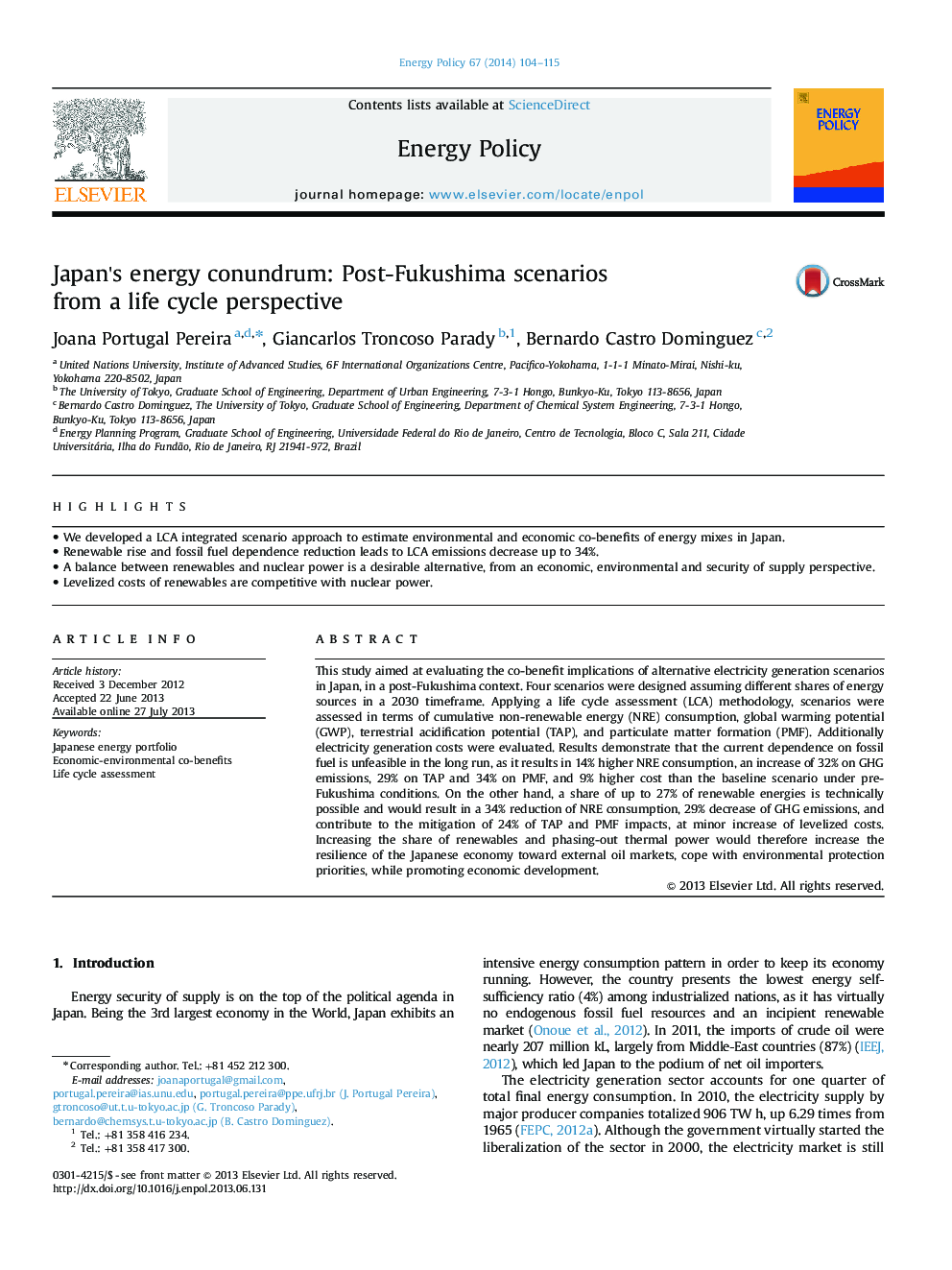| کد مقاله | کد نشریه | سال انتشار | مقاله انگلیسی | نسخه تمام متن |
|---|---|---|---|---|
| 7402189 | 1481291 | 2014 | 12 صفحه PDF | دانلود رایگان |
عنوان انگلیسی مقاله ISI
Japan's energy conundrum: Post-Fukushima scenarios from a life cycle perspective
ترجمه فارسی عنوان
مفهوم انرژی ژاپن: سناریوهای پس از فوکوشیما از منظر چرخه عمر
دانلود مقاله + سفارش ترجمه
دانلود مقاله ISI انگلیسی
رایگان برای ایرانیان
کلمات کلیدی
پروژکتور انرژی ژاپن، مزایای اقتصادی و محیط زیستی، ارزیابی چرخه حیات،
موضوعات مرتبط
مهندسی و علوم پایه
مهندسی انرژی
مهندسی انرژی و فناوری های برق
چکیده انگلیسی
This study aimed at evaluating the co-benefit implications of alternative electricity generation scenarios in Japan, in a post-Fukushima context. Four scenarios were designed assuming different shares of energy sources in a 2030 timeframe. Applying a life cycle assessment (LCA) methodology, scenarios were assessed in terms of cumulative non-renewable energy (NRE) consumption, global warming potential (GWP), terrestrial acidification potential (TAP), and particulate matter formation (PMF). Additionally electricity generation costs were evaluated. Results demonstrate that the current dependence on fossil fuel is unfeasible in the long run, as it results in 14% higher NRE consumption, an increase of 32% on GHG emissions, 29% on TAP and 34% on PMF, and 9% higher cost than the baseline scenario under pre-Fukushima conditions. On the other hand, a share of up to 27% of renewable energies is technically possible and would result in a 34% reduction of NRE consumption, 29% decrease of GHG emissions, and contribute to the mitigation of 24% of TAP and PMF impacts, at minor increase of levelized costs. Increasing the share of renewables and phasing-out thermal power would therefore increase the resilience of the Japanese economy toward external oil markets, cope with environmental protection priorities, while promoting economic development.
ناشر
Database: Elsevier - ScienceDirect (ساینس دایرکت)
Journal: Energy Policy - Volume 67, April 2014, Pages 104-115
Journal: Energy Policy - Volume 67, April 2014, Pages 104-115
نویسندگان
Joana Portugal Pereira, Giancarlos Troncoso Parady, Bernardo Castro Dominguez,
